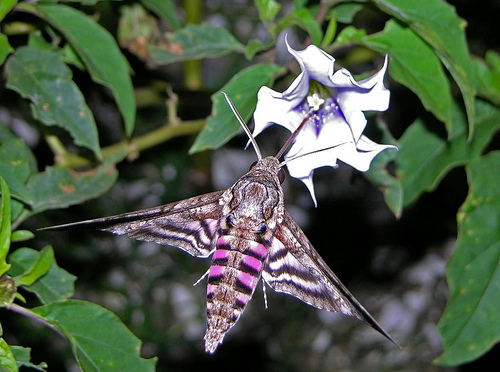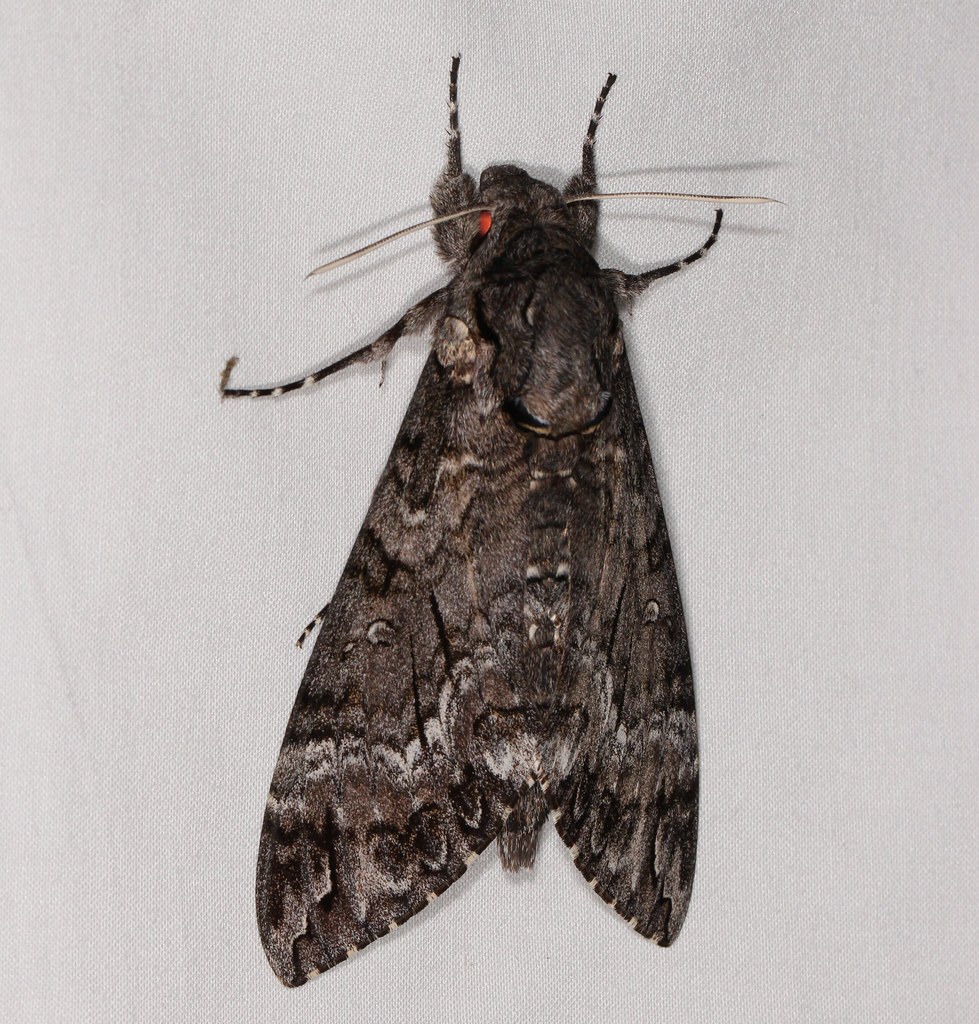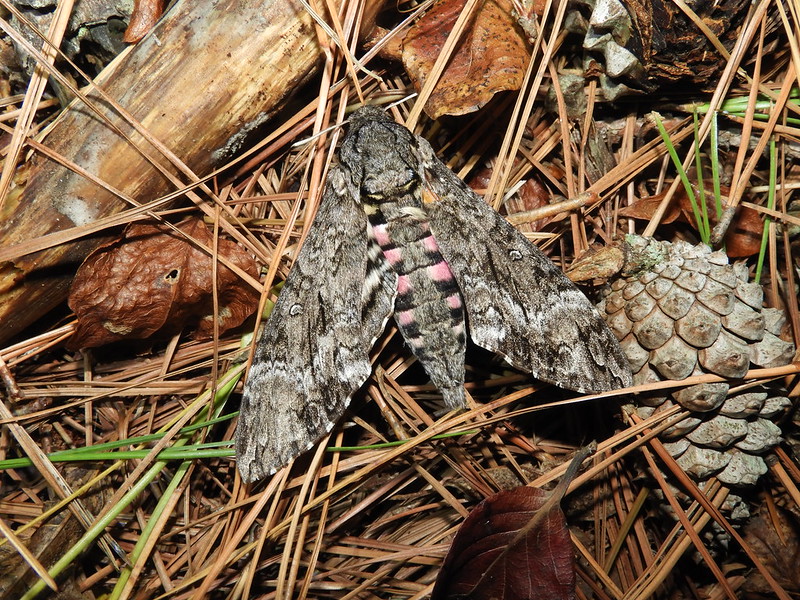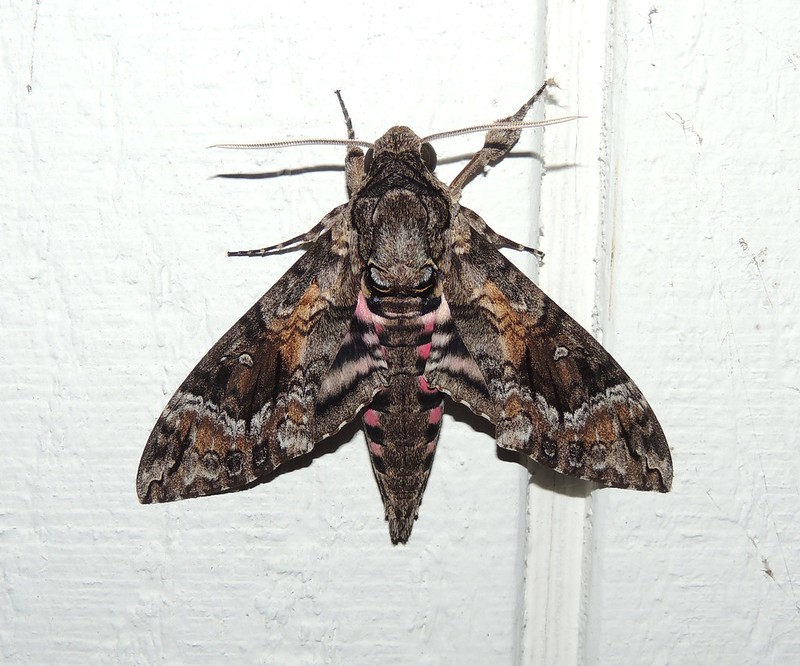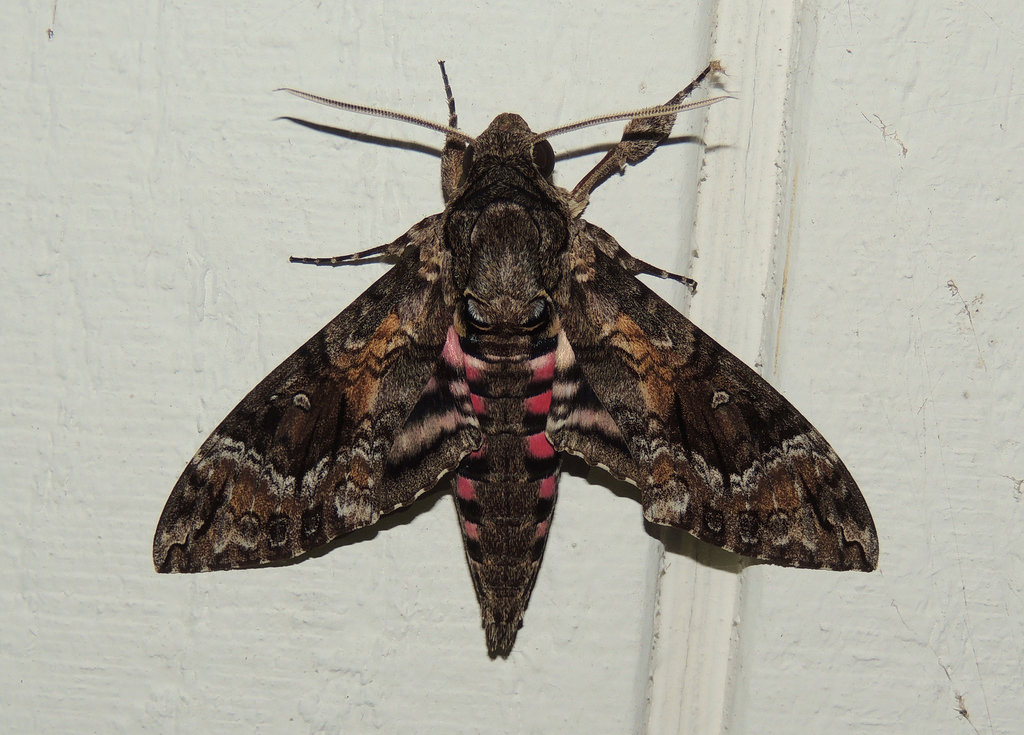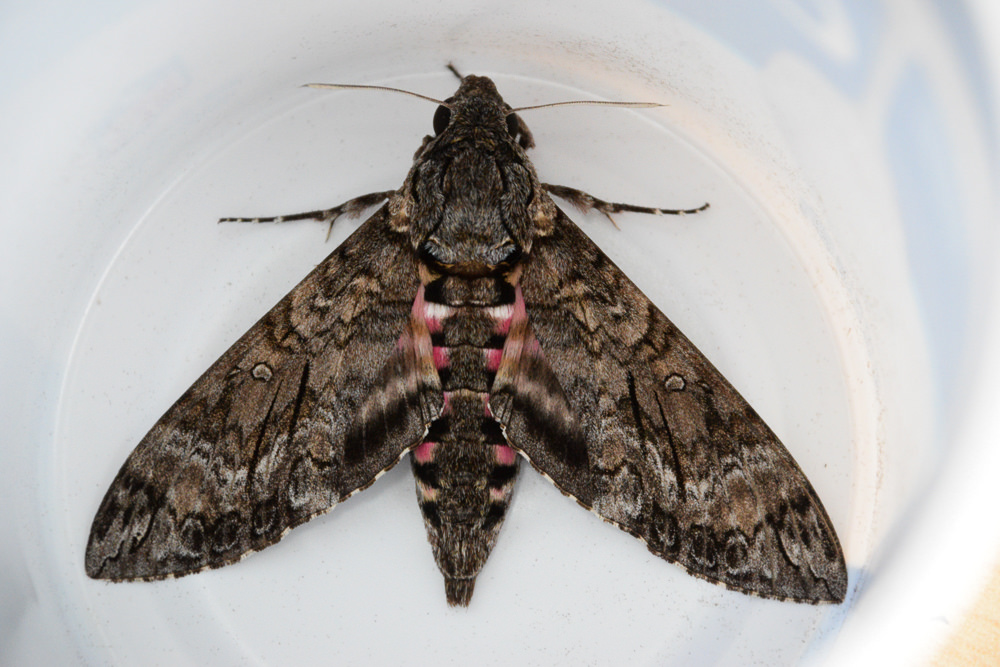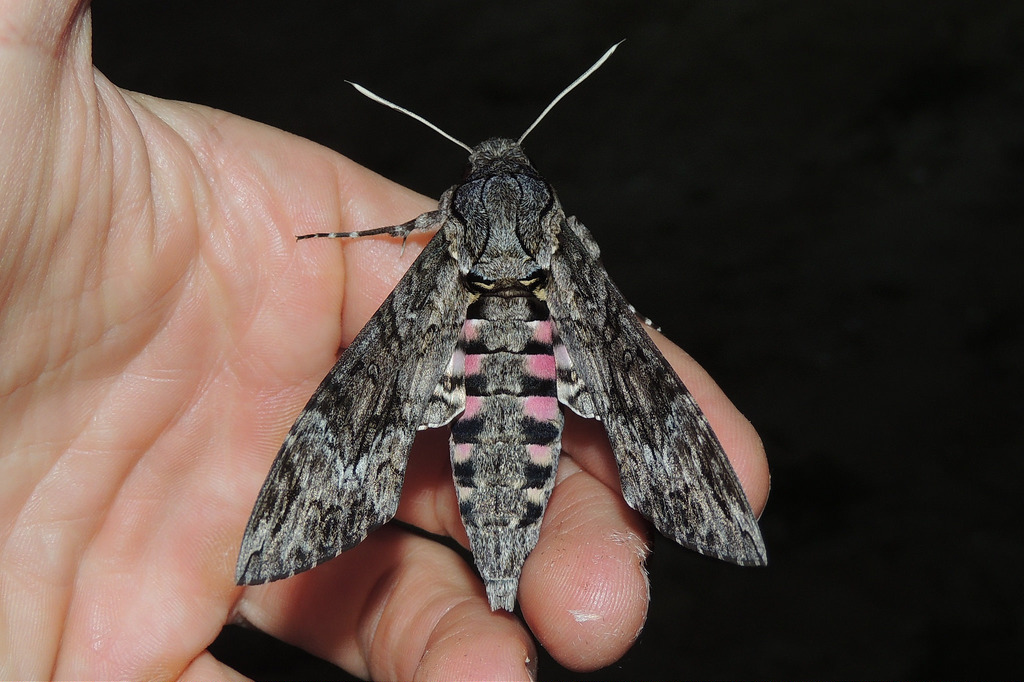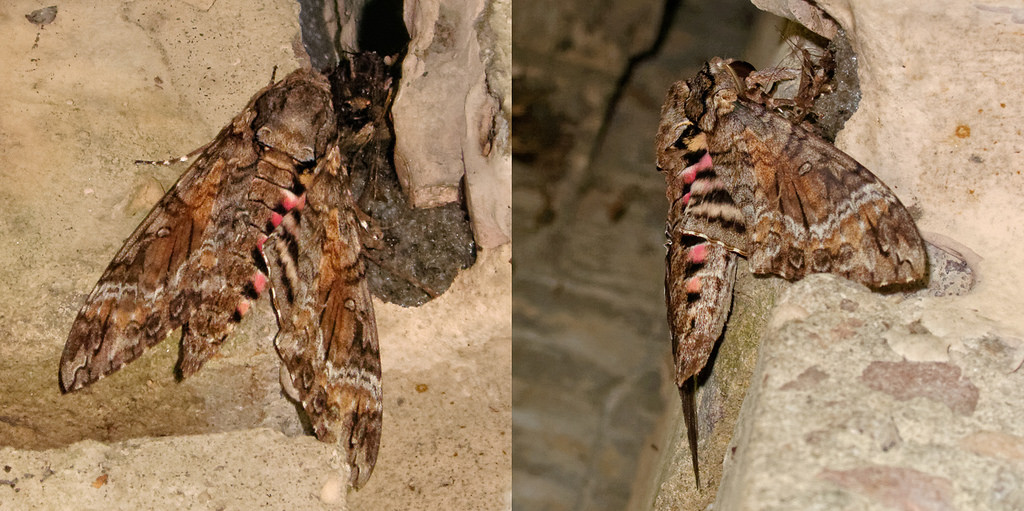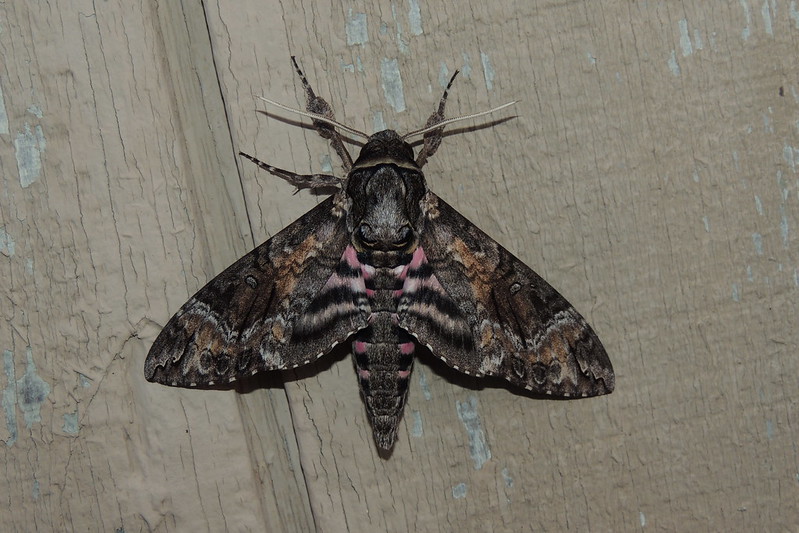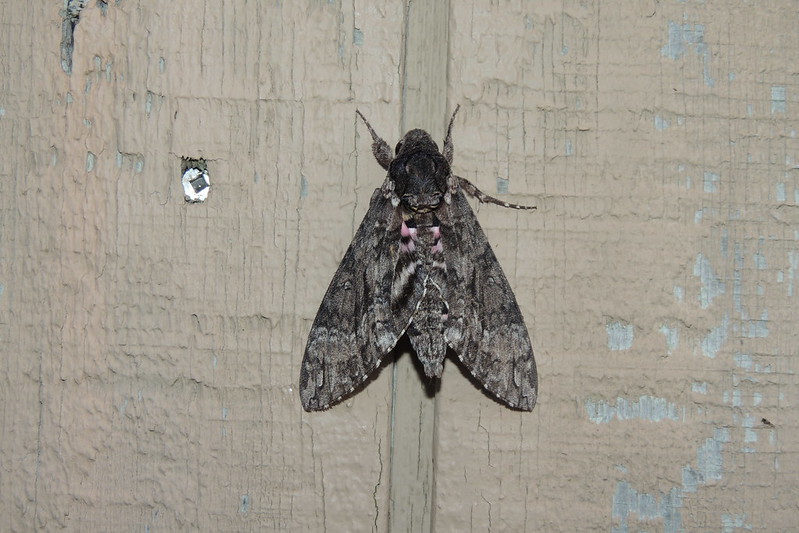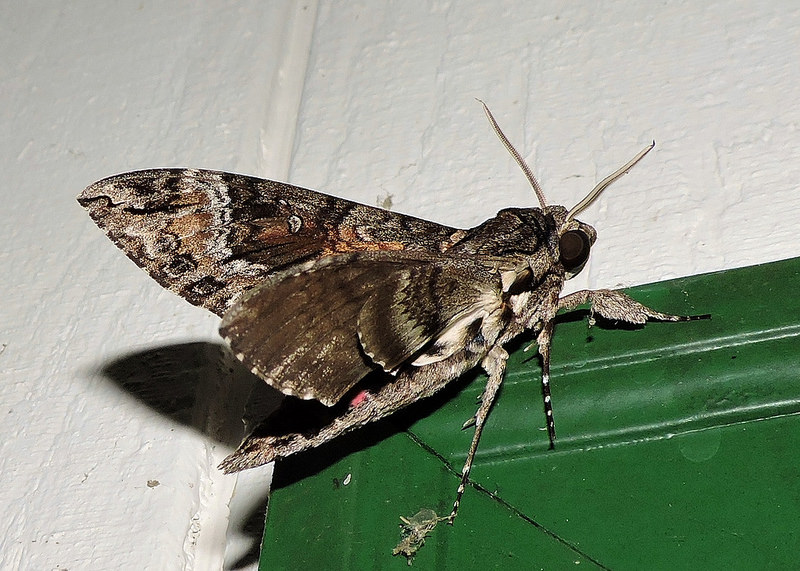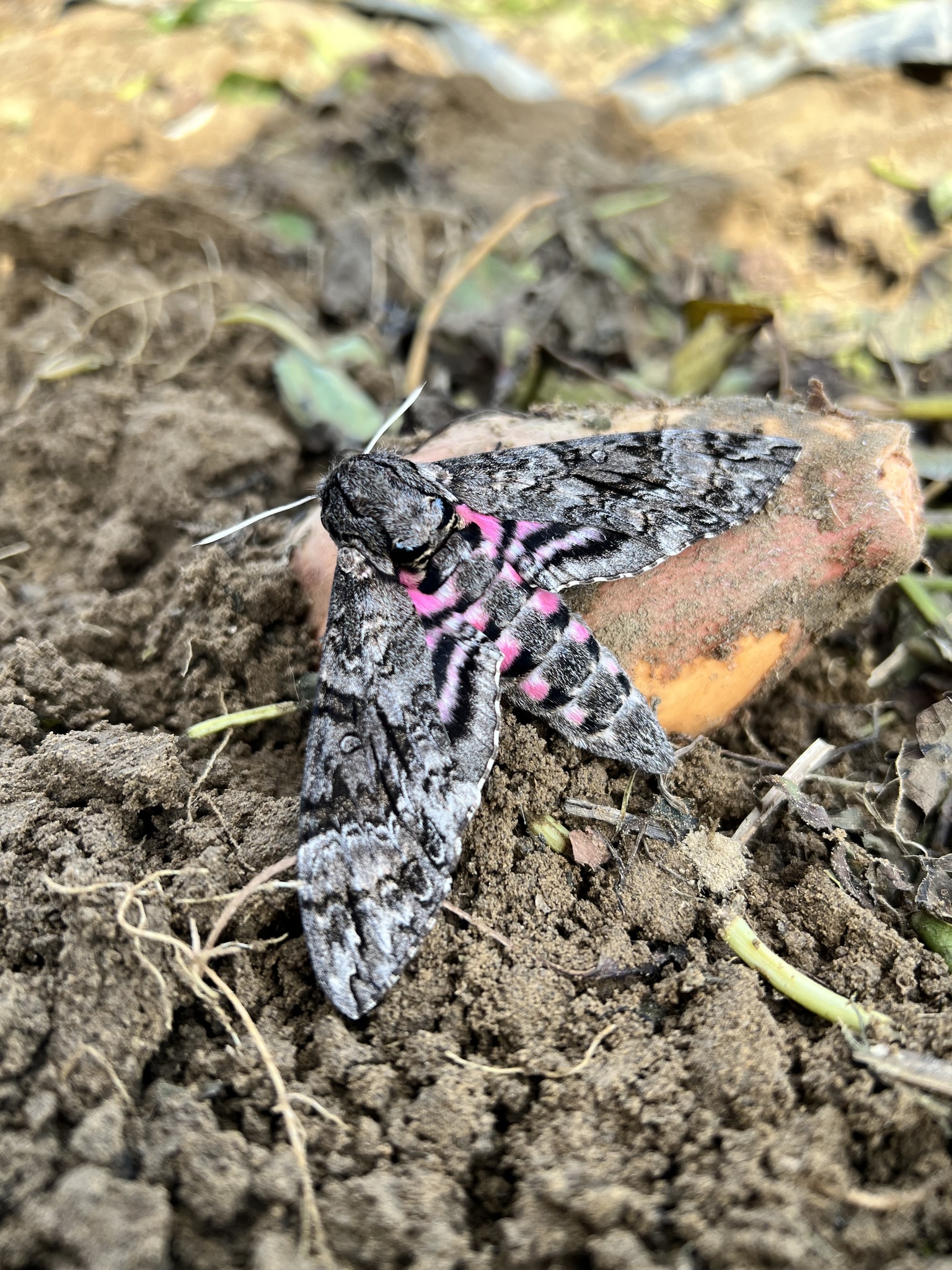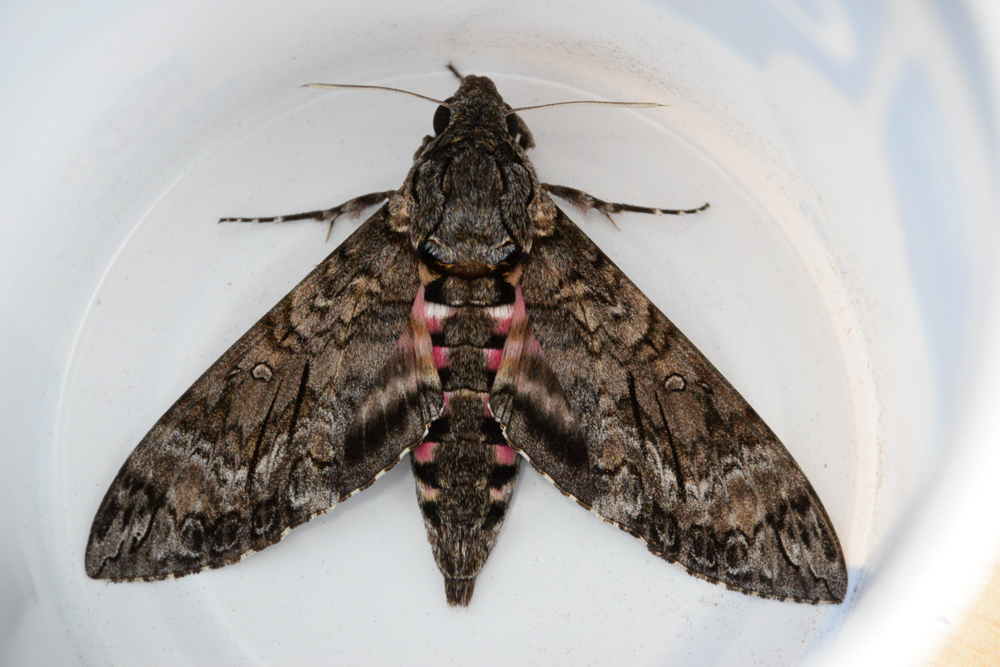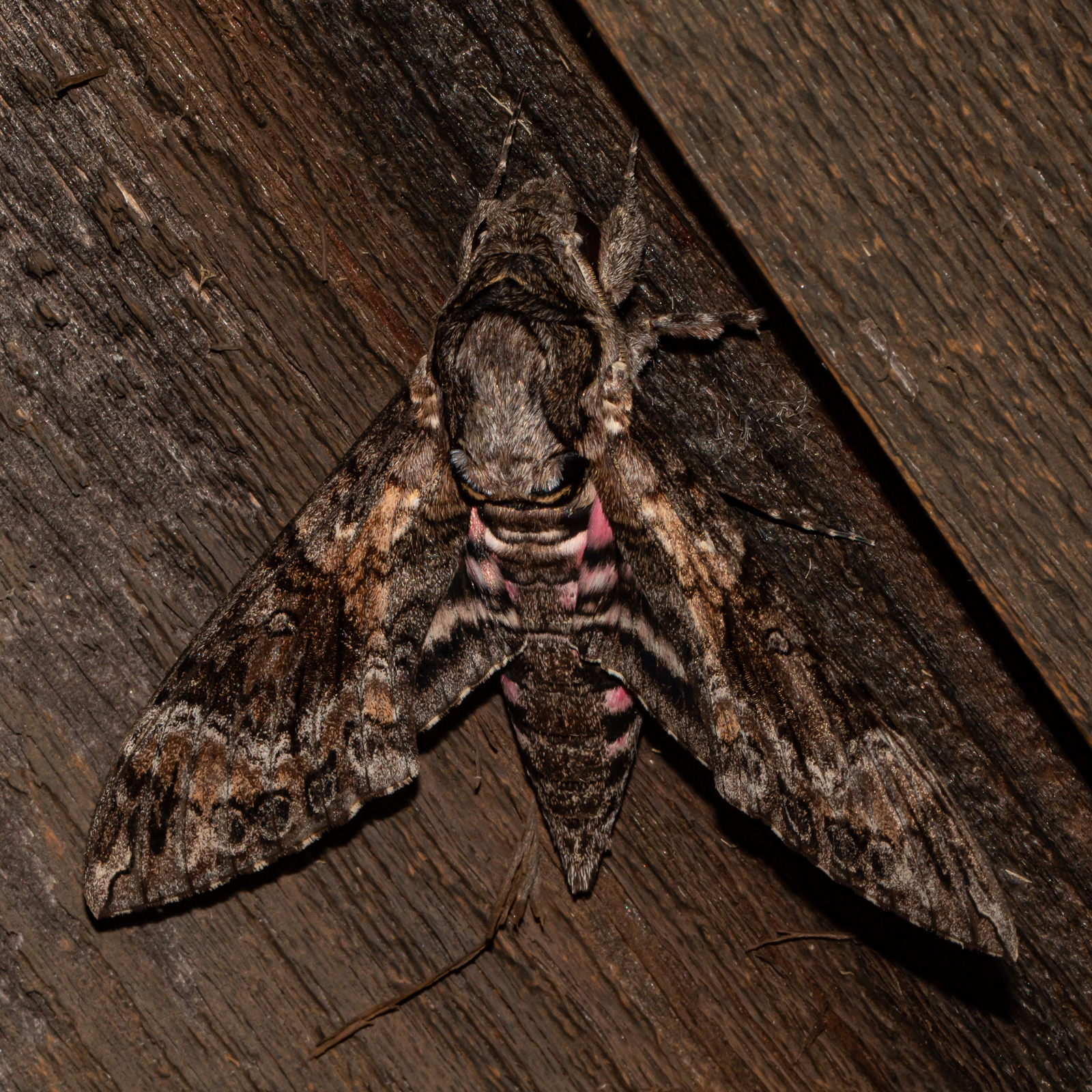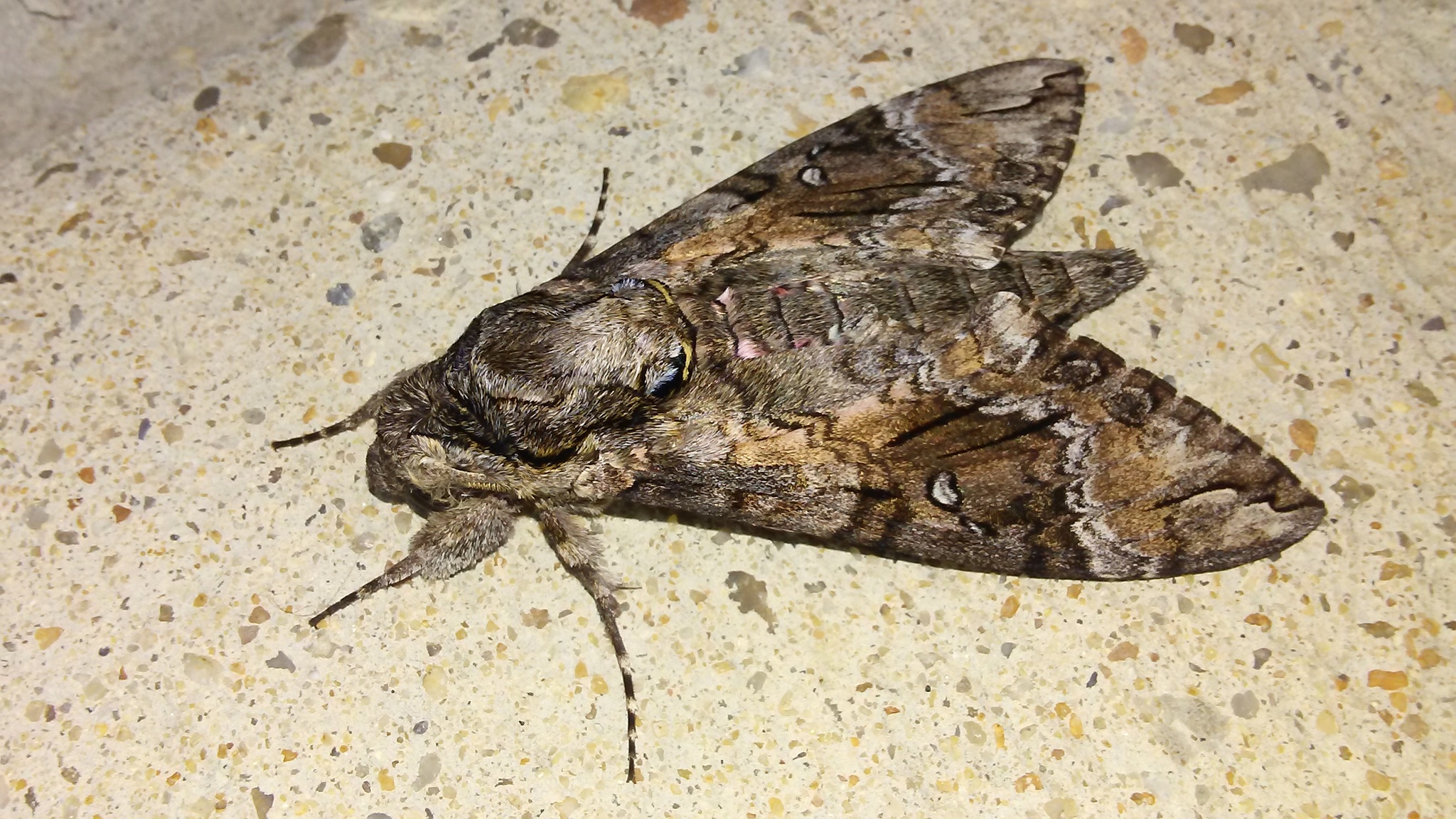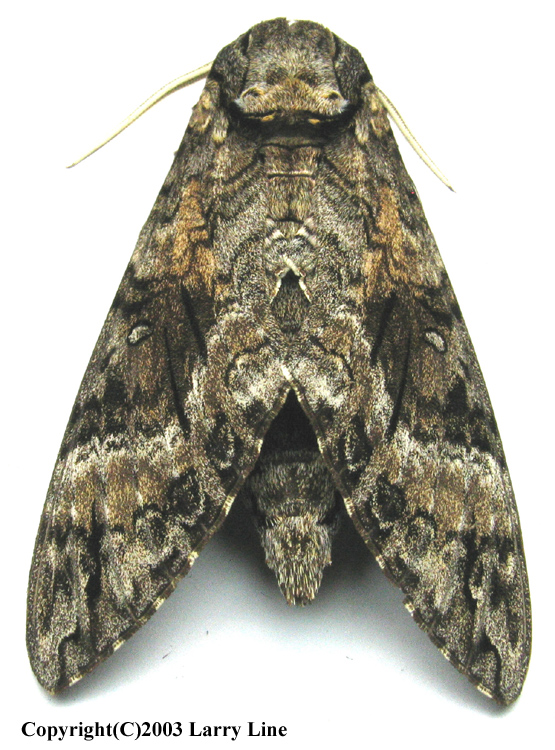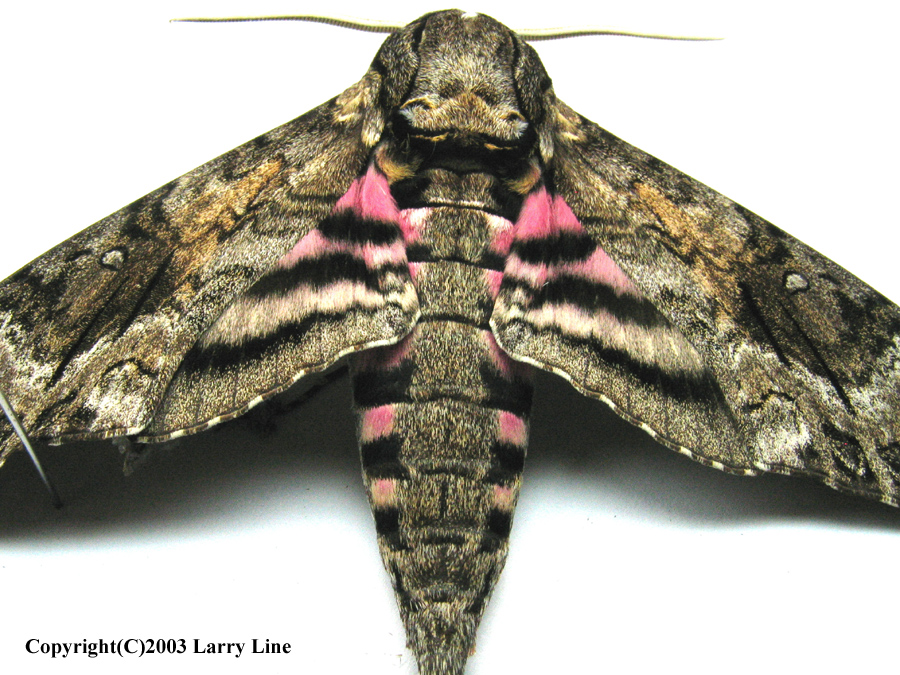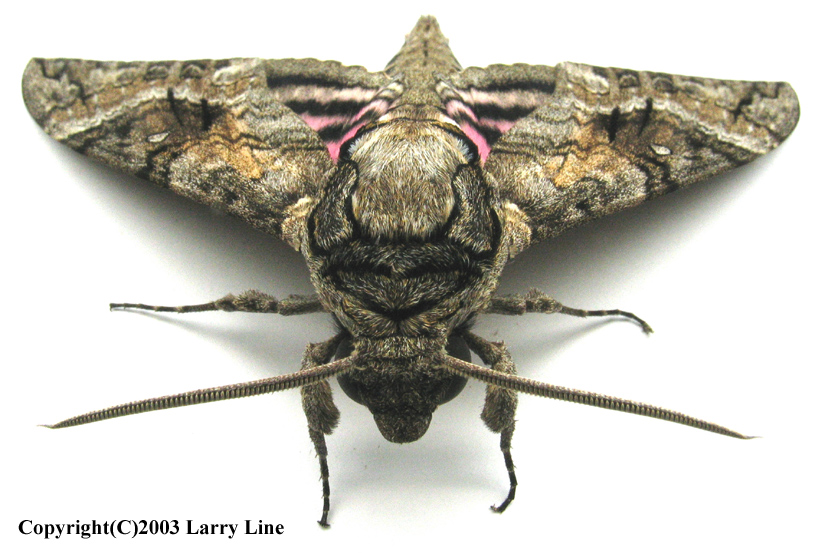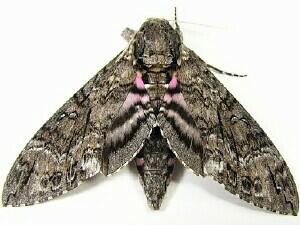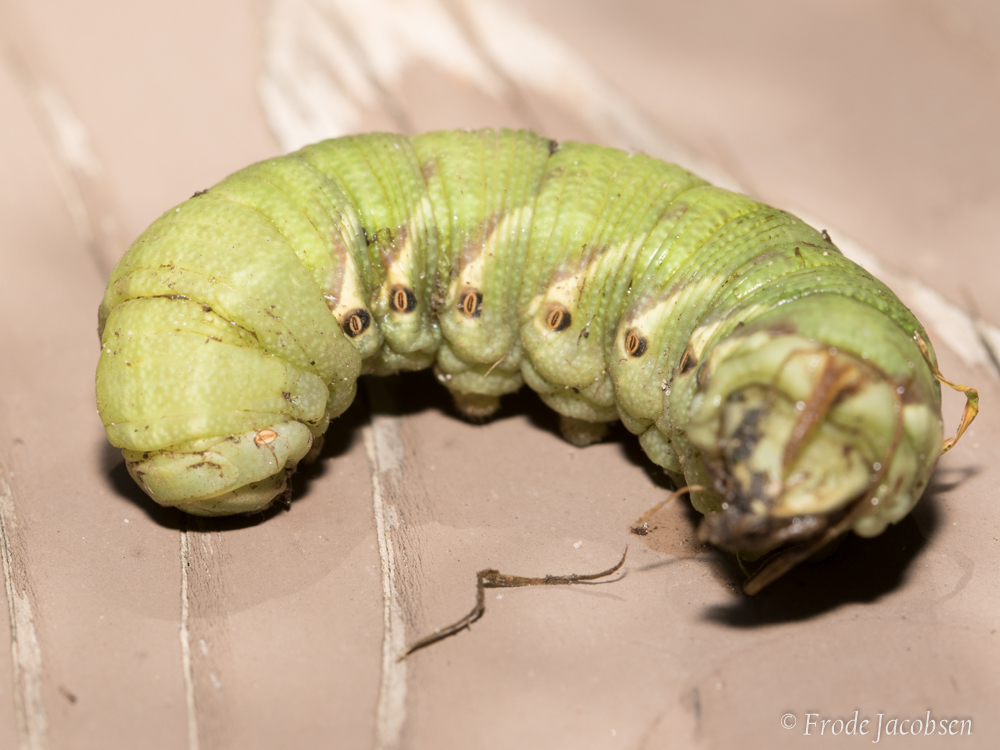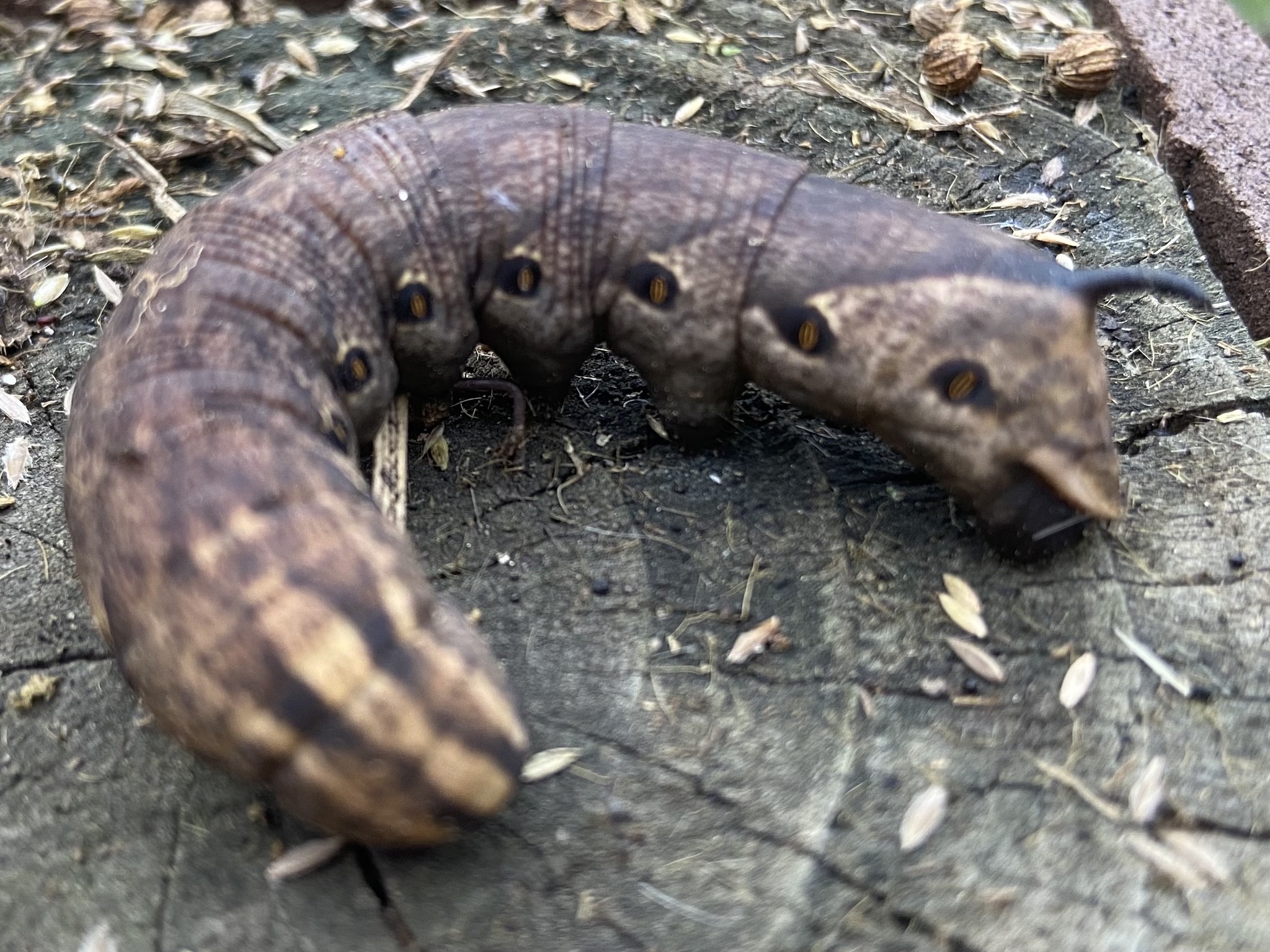Map Snapshot



















45 Records
Relationships
According to the Database of the World's Lepidopteran Hostplants, the Pink-spotted Hawk Moth uses bindweeds (Convolvulus) as a host plant. Field Bindweed is the only widespread species of this genus in Maryland.
Seasonality Snapshot
Source: Wikipedia
| Agrius cingulata | |
|---|---|

| |
| male, Mount Totumas cloud forest, Panama | |
| Scientific classification | |
| Domain: | Eukaryota |
| Kingdom: | Animalia |
| Phylum: | Arthropoda |
| Class: | Insecta |
| Order: | Lepidoptera |
| Family: | Sphingidae |
| Genus: | Agrius |
| Species: | A. cingulata
|
| Binomial name | |
| Agrius cingulata | |

| |
| Native range, see text for details | |
| Synonyms | |
| |
Agrius cingulata, the pink-spotted hawkmoth or sweetpotato hornworm, is a moth in the family Sphingidae. The species was first described by Johan Christian Fabricius in 1775.
Description
[edit]The imago has a wingspan of 3+3⁄4 to 4+3⁄4 inches (9.5–12 cm). Its robust body is gray brown with pink bands. The abdomen tapers to a point. The hindwings are gray with black bands and pink at the bases.
-
Female
-
Female underside
-
Male
-
Male underside
Biology
[edit]The imago is nocturnal.[2] It feeds on the nectar from deep-throated flowers including moonflower (Calonyction aculeatum), morning glories (Convolvulus species), and petunias (Petunia species).[3][4]
The larva is a large, stout caterpillar with a horn. It feeds during the day and the night on sweet potato (Ipomoea batatas), Datura species, and other plants. It is known as a pest of sweet potato.[3]
Distribution
[edit]This is mainly a neotropical species, and the adults migrate north to Canada and south to Patagonia and the Falkland Islands. It can also be found in the Galápagos Islands and Hawaii. It has been reported from western Europe, including Portugal and the United Kingdom. It has recently become established in West Africa and Cape Verde, possibly having originated in Brazil.[5][6][7]
Gallery
[edit]-
Adult variation
-
Caterpillar
References
[edit]- ^ "CATE Creating a Taxonomic eScience – Sphingidae". Cate-sphingidae.org. Archived from the original on 13 November 2012. Retrieved 1 November 2011.
- ^ da Paz, Joicelene Regina Lima; Gimenes, Miriam; Pigozzo, Camila Magalhães (2013). "Three diurnal patterns of anthesis in Ipomoea carnea subsp. fistulosa (Convolvulaceae): Implications for temporal, behavioral and morphological characteristics of pollinators?". Flora – Morphology, Distribution, Functional Ecology of Plants. 208 (2): 138–146. doi:10.1016/j.flora.2013.02.007. ISSN 0367-2530.
- ^ a b Halder, Bani; Sultana, Shanjida; Akter, Tangin; Begum, Shefali (20 July 2018). "Life cycle, feeding behavior and nature of damage of sweet potato leaf moth, Agrius cingulata (Fabricius) and Agrius Convolvuli (Linnaeus) (Lepidoptera: Sphingidae)". Dhaka University Journal of Biological Sciences. 27 (2): 125–134. doi:10.3329/dujbs.v27i2.46461. ISSN 2408-8501.
- ^ Johnson, Steven D.; Raguso, Robert A. (7 September 2015). "The long-tongued hawkmoth pollinator niche for native and invasive plants in Africa". Annals of Botany. 117 (1): 25–36. doi:10.1093/aob/mcv137. ISSN 0305-7364. PMC 4701141. PMID 26346719.
- ^ Pittaway, A. R. (2018). "Agrius Hübner, [1819]". Sphingidae of the Western Palaearctic. Distribution. Retrieved 18 December 2018.
- ^ Bauer, E.; Traub, B. (July 1980). Dr. Heinz Schröder for the Society Internationaler Entomologischer Verein (ed.). "Zur Macrolepidopterenfauna der Kapverdischen Inseln" [On the Macrolepidoptera fauna of the Cape Verde Islands]. Entomologische Zeitschrift (in German). 90 (14). Frankfurt am Main: Alfred Kernen Verlag in Stuttgart: 244–248 ("Part 1: Sphingidae und Arctiidae").
- ^ Eduardo Marabuto (2006). "The Occurrence Of A Neotropical Hawkmoth In Southern Portugal: Agrius cingulatus" (PDF). Boletín Sociedad Entomológica Aragonesa. 38: 163–166.
External links
[edit]- Pink-Spotted Hawkmoth. Moths of North America.
- The Pink-spotted Hawkmoth. Silkmoths.bizland.com
